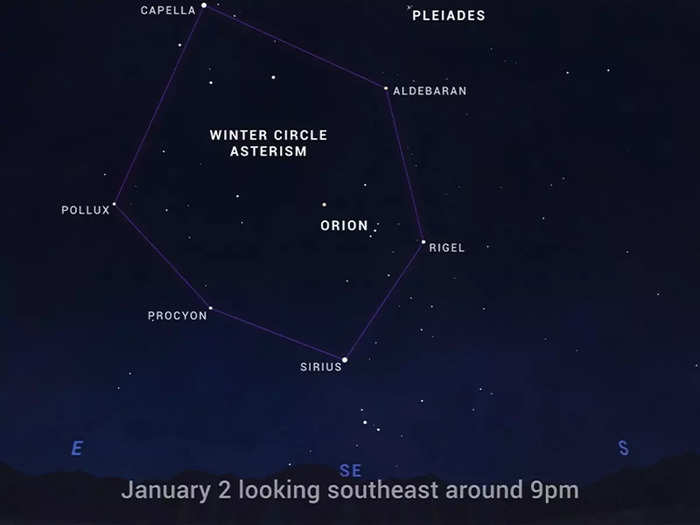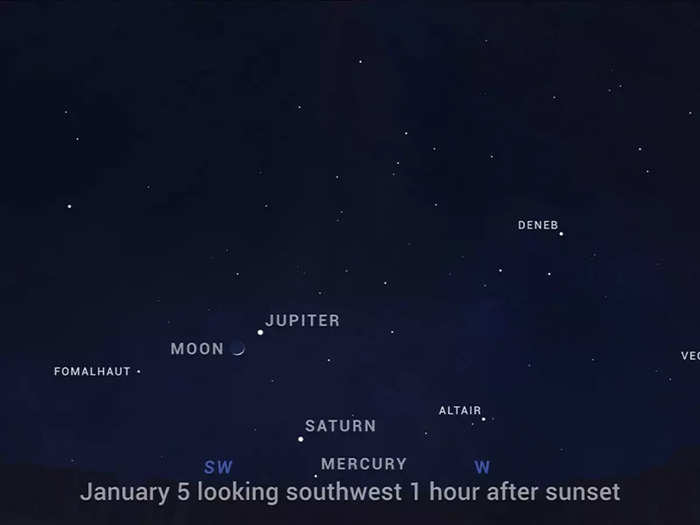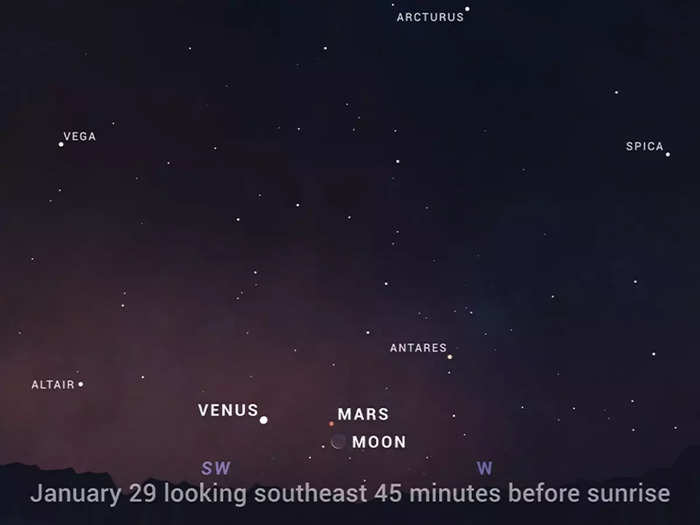If you are someone who likes to witness space events, there are plenty of them to look forward to as we enter the new year. In January, the new moon starts on January 2 and then the skies are going to be pretty dark for a few days, allowing sky watchers to witness stars, meteor showers and more. Let’s take a look at the major ones predicted to occur in January 2022.
Winter Circle
NASA
For those who are into stargazing, the first week of the month brings the opportunity to witness bright stars of the Winter Circle, along with the Pleiades, and Orion. The best time to look-out for them is between 8pm to 9pm, looking southwards in the clear sky.
Meteor shower
NASA
Quadrantids peak during early-January every year and this year two you will be able to witness the meteor showers on the night of January 2nd and the morning of the 3rd. It produces bright fireballs for which there is a better chance of viewing this year, given the beginning of the new moon cycle on the same day.
You should be able to witness some meteors in the skies one night before and after as well. To witness the meteor shower, you will need to have clear skies. So the best way to view it would be finding a dark location, preferably away from the city lights and turning towards northeast directions and looking towards the skies. The best time for witnessing the shooting stars would be after midnight on January 3.
Moon close to Jupiter
NASA
On January 5, you should look south west after sunset to catch the crescent Moon close to the planet, Jupiter. According to NASA, The two celestial bodies will only be four degrees apart which will make them appear together.
Moon with Mars and Venus
NASA
Finally towards the end of the month, on January 29th, those who wake up early will be able to sight the moon in close proximity to Mars. Along with the two, Venus will also be part of the view in the southeastern direction.
Currently, Venus is rising before the sun and can be witnessed as the “morning star”. Mars also returns to the skies after passing the sun and it is likely to get brighter in the coming months as it gets closer to Jupiter and Saturn.
There are plenty of activities happening in the skies in the first and last week of the month, however, to catch it all, you will need to be around places with clear skies.




